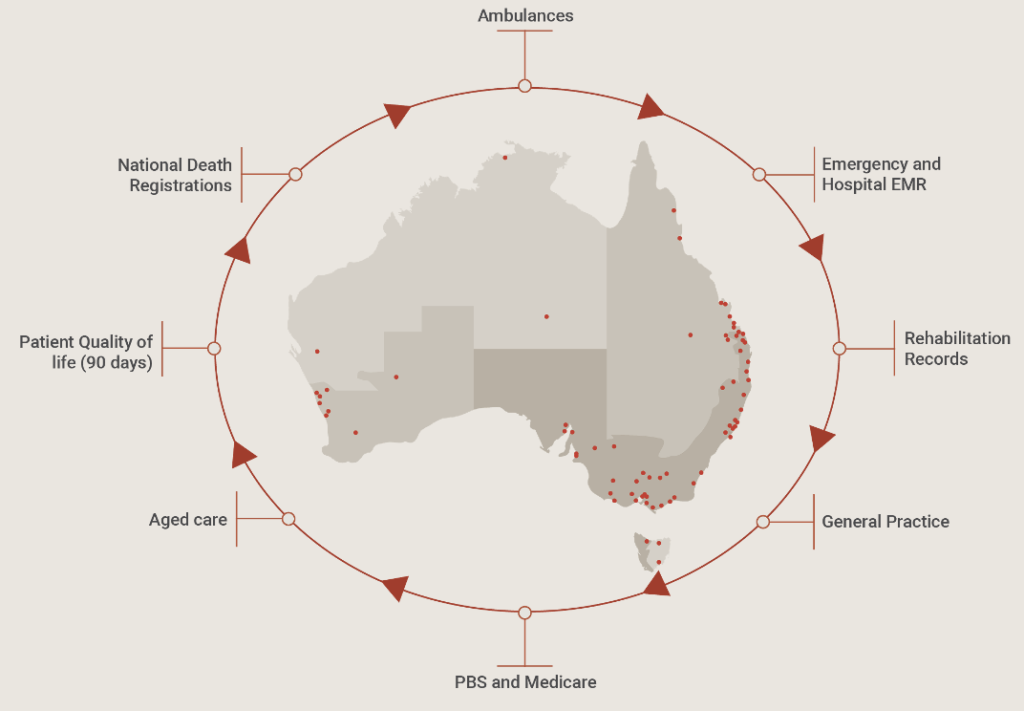SERPICO $5m grant to help improve health outcomes for people who suffer a stroke

Members of the Australian Stroke Alliance have been awarded a $5 million National Health and Medical Research Council (NHMRC) Synergy Grant. The team will now set to work, developing a unique platform powered by artificial intelligence (AI) and health data analytics. Combined, they will provide new knowledge about stroke through efficiently powered trials.
Professor Mark Parsons, one the Stroke Alliance’s research leaders and a professor of Medicine and Neurology at UNSW, is a chief investigator on the SERPICO project – synergistic enhancement of research design with precision analytics to improve clinical outcomes in stroke. Professor Ken Butcher, director of Clinical Neurosciences at Prince of Wales Clinical School at UNSW Medicine & Health, and Associate Professor Andrew Bivard, a stroke and imaging fellow at the University of Melbourne and with the Australian Stroke Alliance, are also CIs on the project.
They are joined by Stroke Alliance members, Dr Damien Easton, CEO of the alliance and Director of Strategy at the Melbourne Brain Centre Royal Melbourne Hospital, Professor Chris Levi, Director of the John Hunter Health and Innovation Precinct, Professor Leonid Churilov, a biostatistician at the University of Melbourne, Dr Freda Werdiger, a physicist at the Melbourne Brain Centre Royal Melbourne Hospital, and Professor Stephen Davis, co-chair of the Australian Stroke Alliance.
This grant will allow us to build on our previous globally impactful work, with a revitalised, more diverse multidisciplinary team that includes new members. It will also allow us to capture our synergies through a number of projects across new domains which have previously been siloed, for example, cognitive sciences and health economics.
“The SERPICO program is particularly exciting as we have assembled a unique team of established researchers – including leading clinician researchers – who will support and mentor a new generation of promising early career researchers. We hope that, as a result, they will be able to accelerate their own careers and build desperately needed ‘research translator’ capacity.
“Of course, ultimately, we hope that the SERPICO program will lead to new discoveries that will translate into improved health outcomes for people who suffer a stroke.”
Read more: Virtual specialists have real impact on rural stroke patients
Stroke is still the leading cause of adult disability in the developed world, despite significant advances over the last 10 years. The SERPICO project has the potential to improve the health outcomes and impact the lives of those who have suffered a stroke.
Prof Parsons said they have assembled a diverse, multidisciplinary team across a suite of new clinical trials for stroke with cutting-edge statistical design. In parallel, they will use their current extensive stroke clinical and advanced imaging datasets to develop AI-driven methods that will support clinician decision-making.
The team will also develop and validate a completely new set of cognitive and physical frailty measures to both predict and measure stroke outcomes.
The work will be carried out with an embedded health economic analysis, supported by our established infrastructure and underpinned by our successful philosophy: right measure, right time, right patient, right treatment.
NHMRC Synergy Grants support outstanding multidisciplinary teams of investigators to work together to answer major questions that cannot be answered by a single investigator.
The SERPICO team includes researchers from the Australian Stroke Alliance, UNSW, University of Melbourne, University of Newcastle, Deakin University, Monash University, Western Sydney University and University of Sydney. Key research institutes/centres include The George Institute, The Ingham Institute for Applied Medical Research and the Melbourne Brain Centre. A number of SPHERE partners are also involved.